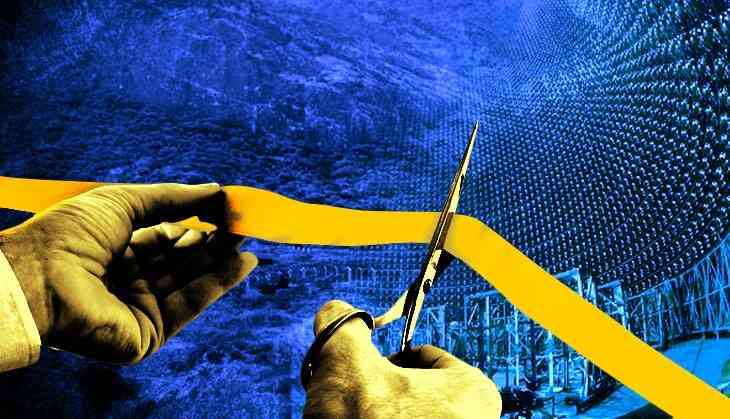India falls behind in neutrino studies, project forced to move from TN to AP

The long-delayed India-based Neutrino Observatory (INO), which was proposed to be set up in the Bodi Hills in the Theni district of Tamil Nadu at a cost of Rs 1,400 crore, is all set to move to Visakhapatnam.
This is thanks to opposition from environmental activists who got a favourable order from the Southern Bench of the National Green Tribunal in March, directing it to get fresh clearance.
INO project director Vivek Datar said: “We waited for four years to get approvals. We can't wait any more.”
He has also said the Tamil Nadu government, which allotted the land in Theni district, is yet to respond to a fresh application filed on 1 June for environmental clearance. On the other hand, “Andhra Pradesh government is very welcoming and we are, therefore, weighing options”.
A site selection committee is believed to have chosen two sites in Kothapalem village in Visakhapatnam district, which has the requisite geophysical characteristics needed to build a 50,000 tonne Magnetic Iron Calorimeter (ICAL) to study neutrino oscillations triggered by rays in the earth's atmosphere.
Datar regretted that the project had to go out of Tamil Nadu, owing to the indecision of the state government. He said the Bodi Hills in the western ghats would be best suited to set up the laboratory 1,000 metres underground with maximum safety, as they offer stable, dense and compact rocks.
Significance of the project
Perhaps the most expensive basic science project ever contemplated, the observatory is to study the neutrino, a tiny particle which has now been found to have mass hierarchy.
The study is to determine which of the three types of neutrinos is heaviest and which is lightest. That knowledge will help physicists probe long-standing mysteries, such as how neutrinos acquire mass, and why the universe has so much more matter than antimatter.
Environmental worries
Scientists initially hoped to have the INO up and running by 2012. That target was ruled out in 2009, when the Union Environment Ministry denied permission to construct the INO on the edge of prime elephant habitat at Mudumalai in the Nilgiri Hills.
The project team then found an alternative site in the Bodi West Hills, and it was cleared by the Union Environment Ministry. Prime Minister Narendra Modi approved the INO in January 2015, and a new completion date was set for 2020.
However, in March, the Southern Bench of the National Green Tribunal suspended the clearance, and directed the project proponent to get a fresh approval.
The tribunal upheld the contention of environmentalists that the Madhikettan Shola National Park in the Idukki district of Kerala is hardly five kilometres from the proposed project site, and the Tamil Nadu-Kerala border just a kilometre away, making it a Category 'A' project.
Since it was near a national park, the green bench asked INO to get clearance from the National Board for Wildlife.
The Union Environment Ministry was responsible for this. It had labelled the INO a Category 'B' project, for which an Environmental Impact Assessment was not necessary.
However, under the guidelines laid down by the ministry, any project that falls within five kilometres of an inter-state boundary, or within a notified national park or a sanctuary, has to be considered Category 'A' .
“The tribunal's order will cause a serious delay in starting the project,” Datar, who is also a physicist at the Tata Institute of Fundamental Research, had then said. He had also said the earliest conceivable completion date would be 2022.
That means the INO will fall further behind other facilities studying neutrino mass hierarchy, including China's Jiangmen Underground Neutrino Observatory, expected to open in 2019.
The project is being moved to Visakhapatnam precisely to cut any further delay.
First published: 15 June 2017, 19:57 IST
